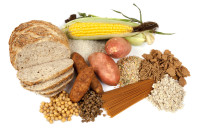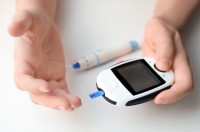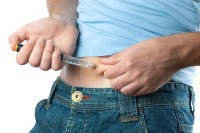- Home
- Dr Sultan Linjawi
Type 1 Diabetes
Type 2 Diabetes
Prediabetes
Gestational Diabetes
- Diabetes Information
- Testimonials
What diet should I follow if I have type 1 diabetes?

Diabetes and Diet Articles - What do I need to know?
Diet, and what you eat, plays an important role in diabetes management. Your diet is also classified as a modifiable risk factor in diabetes. Making changes to your diet can even play an important role in reducing the risk of developing diabetes related complications.
Follow the links below to learn more about diet in diabetes.
Diabetes diet: what should I eat if I have type 2 diabetes?

Making healthy food choices is important in diabetes treatment. In ‘Diabetes diet: what should I eat if I have type 2 diabetes,’ we have outlined 7 important changes you can make to you diet.
How to reduce carbs in your diet

There are so many helpful tips in this article! We cover some clever ways to reduce the carbohydrate content of the meals you are eating, without losing any flavour.
Should I follow a ‘low carb’ diet if I have diabetes?

There are so many helpful tips in this article! We cover some clever ways to reduce the carbohydrate content of the meals you are eating, without losing any flavour.
Diabetes diet. Why is it not more simple?

The link between diabetes and diet isn’t so simple. Food and nutrition do play a role when developing diabetes. But what does the evidence say?
The “Diabetic Diet”: When did it begin and how has it changed?

This article is great for those who like a little history! The article talks about how the treatment of diabetes has changed over the years, starting from 1500 BCE!
Yo-Yo Dieting – More serious than just regaining weight!

Yo-Yo dieting can be harmful to your health. A correlation has been found with yo-yo dieting and heart disease! You can read about the Framingham Heart Study in this article.
4 easy diet and exercise steps!

Looking for some really quick tips on how to make simple changes to your diet and exercise? We have them here and it involves the whole family!
How Can People Eat Junk And Not Gain Weight?

Remember: thin doesn’t necessarily equal healthy. And this was confirmed in a new report which showed that a poor diet is one of the highest contributing factors to chronic disease in Australia, second only to smoking!
Why Do We Eat When We Are Not Hungry?

Typically, people who are tuned in to their hunger cues are able to stop eating when they are satisfied and won’t eat again until they become hungry. This is referred to as intuitive eating. But even intuitive eaters will sometimes override their fullness signals for certain triggers.
When our food choice isn't just about food

Have you ever felt like your food preference or portion sizes were almost out of your control? It is possible that in some way they are. The difficult thing is eating can be driven by our mind instead of being a behaviour to reduce physical feelings of hunger and to stay alive and well.
How to treat a hypo without spinning your sugars into the twenties!

While the best way to manage a hypo is to prevent one happening in the first place, preparing for a hypo is the next best thing. As soon as your BGLs drop below 4mmol/L (72mg/dL), you need to act, as an untreated hypo can turn into a medical emergency very quickly.
What should I do next?
If you experience any symptoms of type 1 diabetes or you have risk factors for developing type 1 diabetes, it is important to get tested for as soon as possible. Some people are at higher risk and need regular testing.
By diagnosing and treating the type 1 diabetes early, it means you can decrease the risk of developing or delay any further health complications of type 1 diabetes, for example nerve damage, blindness, and heart disease. It is important to know that diagnosing type 1 diabetes should not rely solely on using a Hb A1c test.
Once you learn what your type 1 diagnosis is, or if you already have type 1 diabetes, the next most important step is to become educated. You can join the 12-week Type 1 Diabetes Program to help you learn how best to manage the condition. For example, you can learn how best to monitor blood glucose levels in type 1 diabetes. The program is personalised and tailored, giving you more of the content that you want. The program also helps you to stay motivated and teaches you what changes you need to make. The first week is free and full of helpful and crucial information.
Interested in more information on type 1 diabetes?
Follow the links below to learn more about type 1 diabetes.





